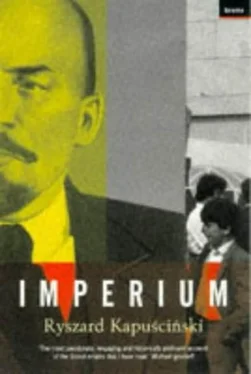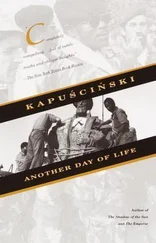Chateaubriand Francois Renę de, Pamiętniki zza grobu, tłum. J. Guze, PIW, Warszawa 1991.
Chruszczow Nikita S., Fragmenty wspomnień, Krąg, Warszawa 1984.
Claudel Paul, Dzienniki, tłum. J. Rogoziński, PAX, Warszawa 1977.
Cournot Antoine A., Essai sur les fondements de nos connaissances, Paris 1851.
Czarenc Egisze, Poezje wybrane, red. A. Mandalian, tłum. W. Woroszylski, PIW, Warszawa 1962.
Czechów Antoni, Listy, t.1-2, tłum. N. Gałczyńska, A. Sarachanowa, WL, Kraków 1988.
Deutscher Isaac, Russta, China, and the West 1953-1966, Pengum Books, London 1970
Dzilas Milovan, Rozmowy ze Stalinem, tłum A Oołkosz, Iskry, Warszawa 1991
Dostojewski Fiodor, Białe noce, tłum W Bromewski, PIW, Warszawa 1963
Dostojewski Fiodor, O literaturze i sztuce, tłum M Leśniewska, WL, Kraków 1976
Dostojewski Fiodor, Sobowtór, tłum S Pollak, PIW, Warszawa 1962
Ejdelman Natan, Rewolucja s wierchu' w Rossu, Kniga, Moskwa 1989
Ginzburg Eugenia, Stroma ściana, tłum A Mandahan, Czytelnik, Warszawa 1990
Greków A P, Freski cerkwi Spasa Preobrazenija na Kowalewie, Iskusstwo, Moskwa 1987
Grossman Wasilij, Wszystko płynie, tłum W Bienkowska, Współpraca, Warszawa 1990
Grzegorz z Nareku, Księga śpiewów załobhwych, red A Mandalian, PIW, Warszawa 1990
Herling-Grudzinski Gustaw, Inny świat, Czytelnik, Warszawa 1989
Hough Jerry F, Opening up the Soviet Economy, The Brookmgs Institution, 1988
Iłowańska-Alberti Irina, Razruszenije Chrama Chnsta Spasitiela, Overseas Publ Interchange Ltd, London 1988
Ingarden Roman, Z teorii języka i filozoficznych podstaw logiki, PWN, Warszawa 1972
Kapuścinski Ryszard, Kirgiz schodzi z konia, Czytelnik, Warszawa 1968
Kraszewski Józef I, Wspomnienia Odessy fedynasu i Budzaku, PIW, Warszawa 1985
Leonardo da Vinci, Traktat o malarstwie (w M Rzepińska, Historia koloru w dziejach malarstwa europejskiego), WL, Kraków 1983
Lippmann Walter, The Public Philosophy, A Mentor Book, New York 1955
Magadan, konspekt proszłogo, Magadan 1989 Memmi Albert, Portrait du Colonise, Buchet /Chastel, Corrua 1957 Michajłowski Mikołaj, Okrutny talent (w Okrutny talent,
wybór Z Podgórzec), WL, Kraków 1984 Mickiewicz Adam, Dzielą, t X, Czytelnik, Warszawa 1952 Miedwiediew Roj, Pod osąd historii, 11-2, Bellona, Warszawa 1990 Mlynar Zdenek, Mróz ze Wschodu, tłum P Heartman, NO W, Warszawa 1989
Monn Edgar, O naturze Związku Radzieckiego, Volumen, Warszawa 1990
Pipes Richard, The Russian Revolution, Alfred A Knopf, New York 1990
Pruszynski Ksawery, Noc na Kremlu, tłum J Roszko, M Wójtowicz, Rój, Warszawa 1989
Saint-Exupery Antoine de, Ziemia, planeta ludzi, tłum W i Z Bienkowscy, WL, Kraków 1971
Schulz Bruno, Proza, WL, Kraków 1973 Sienkiewicz Henryk, Quo vadis ?Wybór pism, t XI, PIW, Warszawa 1955
Sołowiow Władimir, Wybór pism, 11-3,,W drodze', Poznań 1988
Sołzenicyn Aleksander, Jak odbudować Rosję'', tłum J Zychowicz, Arka, Kraków 1991 Sudba Arała, Mexnat, Taszkient 1988
Szałamow Warłam, Opowiadania kołymskie, 11-3, tłum J Baczynski, Atext, Gdańsk 1991
Tiutczew Fiodor, Sto wierszy, wybór R Luźny, WL, Kraków1989
Tocqueville Alexis de, Dawny ustrój i rewolucja, tłum A Wolska, Czytelnik, Warszawa 1970
Tołstoj Lew, Wojna i pokój, 11-4, tłum Z Petersowa, Czytelnik, Warszawa 1950
Turgieniew Iwan, Sen (w: Aleksander Wat, Poezje zebrane), Znak, Kraków 1992. Vauvenargues Luc de Clapiers deUwagi i myśli, tłum. J. Kasprowicz, Księgarnia Polska B. Potonieckiego, Lwów 1909.
Walicki Andrzej, W kręgu konserwatywnej utopii, PWN, Warszawa 1964.
Weil Simone, Myśli, wybór A. Olędzka-Frybesowa, PAX, Warszawa 1985.
Wells Herbert G., Rosja we mgle, flum. J. Brodzki, Książka i Wiedza, Warszawa 1967. Weissberg-Cybulski Aleksander, Wielka czystka, tłum. A. Ciołkosz, Czytelnik, Warszawa 1990.
Wojnowicz Władimir, Moskwa 2042, tłum. H. Broniatowska, PIW, Warszawa 1992. Żygulin Anatolij, Czarne kamienie, tłum. E. P. Melech, PIW, Warszawa 1992.

***














